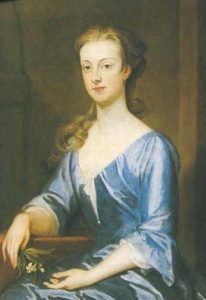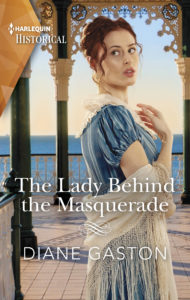When Queen Elizabeth II gave royal assent to the 2013 Succession to the Crown Act it meant that both sons and daughters would have an equal right to inherit the royal crown. Until then daughters could inherit only if the monarch had no sons. This was a big royal step to equality, but what of the non-royal titles?
Our basic knowledge of history (from school, private study, or extensive reading of historical novels) has gotten ourselves used to the idea that titles and/or property are always inherited by the oldest male heir; if not the oldest living son, then the oldest, closest male heir. We think of Mr. Collins in Pride and Prejudice, for example.
This might have been the most common type of aristocratic inheritance in the UK, but it was not the only one. There were titles and property that women could inherit, even as far back as the 1300s.
It all depended upon how the title was created. (Isobel explained it very well in her blog post, A Duchess in Her Own Right). Peerages that daughters could inherit were more typically Scottish, but there were English ones as well. Most of these titles were baronesses, but there were also viscountesses, marchionesses, and countesses. There were even Duchesses. The 1st Duke of Marlborough’s title passed to his daughter.

Henrietta Godolphin, 2nd Duchess of Marlborough
Peeresses who inherited titles in their own right could not sit in the House of Lords, though. That did not change until 1948.
The monarch could also create peeresses in their own right. George IV created three: Joan Canning, 1st Viscountess Canning; Catherine Fitzgerald, 1st Baroness FitzGerald and Vesey; Charlotte Strutt, 1st Baroness Rayleigh. The King or Queen could also create life peerages which ended upon the death of the title holder.
In my latest book, The Lady Behind the Masquerade, Kitty inherited the title Baroness Walsingham, because the villain, Turstin, had faked his own death and the title fell to her, having been written that way at the time of the title’s creation which could have been in the 1300s. It was unusual, but it could happen.  Can you think of other Regencies or Historicals where the woman bore a title in her own right?
Can you think of other Regencies or Historicals where the woman bore a title in her own right?
Would you like to win a copy of The Lady Behind the Masquerade? I’ll be giving away both The Lady Behind the Masquerade and Secretly Bound to the Marquess in Isn’t It Romantic Book Club’s Fall into a Book September 22 and 23. Join Isn’t It Romantic Book Club on Facebook and fall into 300 books!

